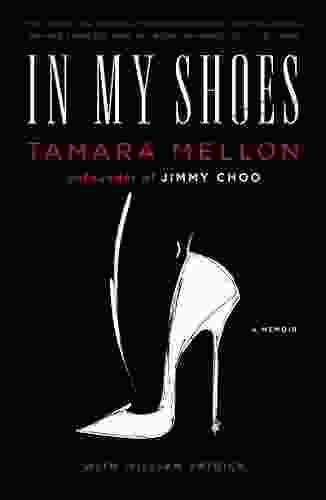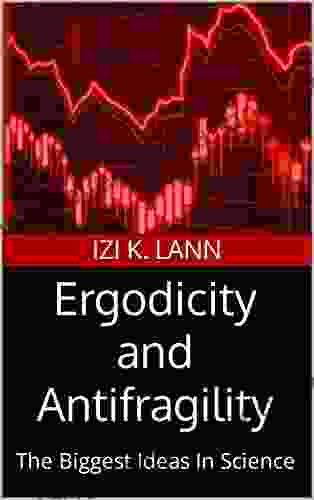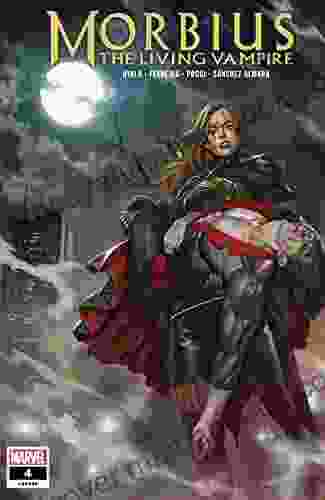Ergodicity and Antifragility: The Biggest Ideas in Science

Ergodicity and antifragility are two of the most important concepts in science. Ergodicity is the idea that the time average of a system is equal to the ensemble average. Antifragility is the idea that a system can benefit from disorder and volatility.
4 out of 5
| Language | : | English |
| File size | : | 1300 KB |
| Text-to-Speech | : | Enabled |
| Screen Reader | : | Supported |
| Enhanced typesetting | : | Enabled |
| Word Wise | : | Enabled |
| Print length | : | 10 pages |
These two concepts have important implications for our understanding of the world and our place in it. Ergodicity tells us that the long-term behavior of a system is determined by its average properties. Antifragility tells us that systems that are able to withstand and even benefit from disorder and volatility are more likely to survive and thrive in the long run.
Ergodicity
The concept of ergodicity was first introduced by the mathematician Ludwig Boltzmann in the 19th century. Boltzmann was interested in understanding the behavior of gases. He realized that the time average of the velocity of a gas molecule is equal to the ensemble average of the velocity of all gas molecules. This means that we can learn about the behavior of a gas by studying a single molecule over a long period of time.
Ergodicity is a powerful concept that has been used to understand a wide variety of systems, from physical systems like gases to biological systems like populations. It is a fundamental principle of statistical mechanics, and it has important implications for our understanding of the world.
Antifragility
The concept of antifragility was first introduced by the Lebanese-American statistician Nassim Nicholas Taleb in the 21st century. Taleb was interested in understanding why some systems are able to withstand and even benefit from disorder and volatility, while others are not.
Taleb realized that antifragility is a property of systems that are able to adapt and change in response to their environment. These systems are not simply resilient to disorder and volatility; they actually thrive on it. They become stronger and more robust as they are exposed to more disorder and volatility.
Antifragility is a valuable concept for understanding a wide variety of systems, from financial systems to biological systems. It is a reminder that disorder and volatility are not always bad things. In fact, they can be essential for the survival and growth of complex systems.
Implications for the Future
The concepts of ergodicity and antifragility have important implications for the future. Ergodicity tells us that the long-term behavior of a system is determined by its average properties. This means that we can predict the future behavior of a system by studying its past behavior.
Antifragility tells us that systems that are able to withstand and even benefit from disorder and volatility are more likely to survive and thrive in the long run. This means that we should design our systems to be antifragile. We should make them able to adapt and change in response to their environment.
The concepts of ergodicity and antifragility are essential for understanding the world around us. They can help us to make better decisions about the future. By understanding these concepts, we can create a more sustainable and prosperous world for ourselves and for our children.
4 out of 5
| Language | : | English |
| File size | : | 1300 KB |
| Text-to-Speech | : | Enabled |
| Screen Reader | : | Supported |
| Enhanced typesetting | : | Enabled |
| Word Wise | : | Enabled |
| Print length | : | 10 pages |
Do you want to contribute by writing guest posts on this blog?
Please contact us and send us a resume of previous articles that you have written.
 Top Book
Top Book Novel
Novel Fiction
Fiction Nonfiction
Nonfiction Literature
Literature Paperback
Paperback Hardcover
Hardcover E-book
E-book Audiobook
Audiobook Bestseller
Bestseller Classic
Classic Mystery
Mystery Thriller
Thriller Romance
Romance Fantasy
Fantasy Science Fiction
Science Fiction Biography
Biography Memoir
Memoir Autobiography
Autobiography Poetry
Poetry Drama
Drama Historical Fiction
Historical Fiction Self-help
Self-help Young Adult
Young Adult Childrens Books
Childrens Books Graphic Novel
Graphic Novel Anthology
Anthology Series
Series Encyclopedia
Encyclopedia Reference
Reference Guidebook
Guidebook Textbook
Textbook Workbook
Workbook Journal
Journal Diary
Diary Manuscript
Manuscript Folio
Folio Pulp Fiction
Pulp Fiction Short Stories
Short Stories Fairy Tales
Fairy Tales Fables
Fables Mythology
Mythology Philosophy
Philosophy Religion
Religion Spirituality
Spirituality Essays
Essays Critique
Critique Commentary
Commentary Glossary
Glossary Bibliography
Bibliography Index
Index Table of Contents
Table of Contents Preface
Preface Introduction
Introduction Foreword
Foreword Afterword
Afterword Appendices
Appendices Annotations
Annotations Footnotes
Footnotes Epilogue
Epilogue Prologue
Prologue Eneja Lovelyn
Eneja Lovelyn Grace Burrowes
Grace Burrowes Christof Weber
Christof Weber Nl Herzenberg
Nl Herzenberg Gonzalo Sanabria
Gonzalo Sanabria Douglas Adams
Douglas Adams Stephanie Land
Stephanie Land Peter Clarke
Peter Clarke Paula Polk Lillard
Paula Polk Lillard Heide Goody
Heide Goody Don K Philpot
Don K Philpot Jim M Spinks
Jim M Spinks Justin Payne
Justin Payne Ondrej Sarek
Ondrej Sarek Jenny Handy
Jenny Handy Benjamin Corman
Benjamin Corman Sheila Scobba Banning
Sheila Scobba Banning Bonnie Wright
Bonnie Wright Dora Charles
Dora Charles Blake Crouch
Blake Crouch
Light bulbAdvertise smarter! Our strategic ad space ensures maximum exposure. Reserve your spot today!

 Julio CortázarThe Poetic Reading with Hebrew Text: Unlocking the Ancient Wisdom with Modern...
Julio CortázarThe Poetic Reading with Hebrew Text: Unlocking the Ancient Wisdom with Modern... Spencer PowellFollow ·18.2k
Spencer PowellFollow ·18.2k Forrest BlairFollow ·10.3k
Forrest BlairFollow ·10.3k Robert FrostFollow ·10.4k
Robert FrostFollow ·10.4k Ernest HemingwayFollow ·13k
Ernest HemingwayFollow ·13k Jamison CoxFollow ·4.4k
Jamison CoxFollow ·4.4k Edward ReedFollow ·3.7k
Edward ReedFollow ·3.7k Dean ButlerFollow ·6.8k
Dean ButlerFollow ·6.8k Franklin BellFollow ·14.6k
Franklin BellFollow ·14.6k

 Eugene Powell
Eugene PowellComplete Guide to Using Yoga With Kids: Benefits, Tips,...
Yoga is an ancient practice that has been...

 Benji Powell
Benji PowellHow to Make $000 Per Week on Craigslist
Are you looking for a way to make extra money...

 Gabriel Garcia Marquez
Gabriel Garcia MarquezGrocery Row Gardening: The Exciting New Permaculture...
Kick-start your gardening journey with the...

 Hayden Mitchell
Hayden MitchellUnveiling the Gripping World of Winterwood: Ben Hood...
In the annals of crime thrillers, the...

 E.M. Forster
E.M. ForsterThe Financial Advisor Guide To Managing and Investing...
As a financial...

 Lee Simmons
Lee SimmonsIn My Shoes Memoir: A Poignant Journey of Resilience,...
In the tapestry of life, adversity often...
4 out of 5
| Language | : | English |
| File size | : | 1300 KB |
| Text-to-Speech | : | Enabled |
| Screen Reader | : | Supported |
| Enhanced typesetting | : | Enabled |
| Word Wise | : | Enabled |
| Print length | : | 10 pages |










